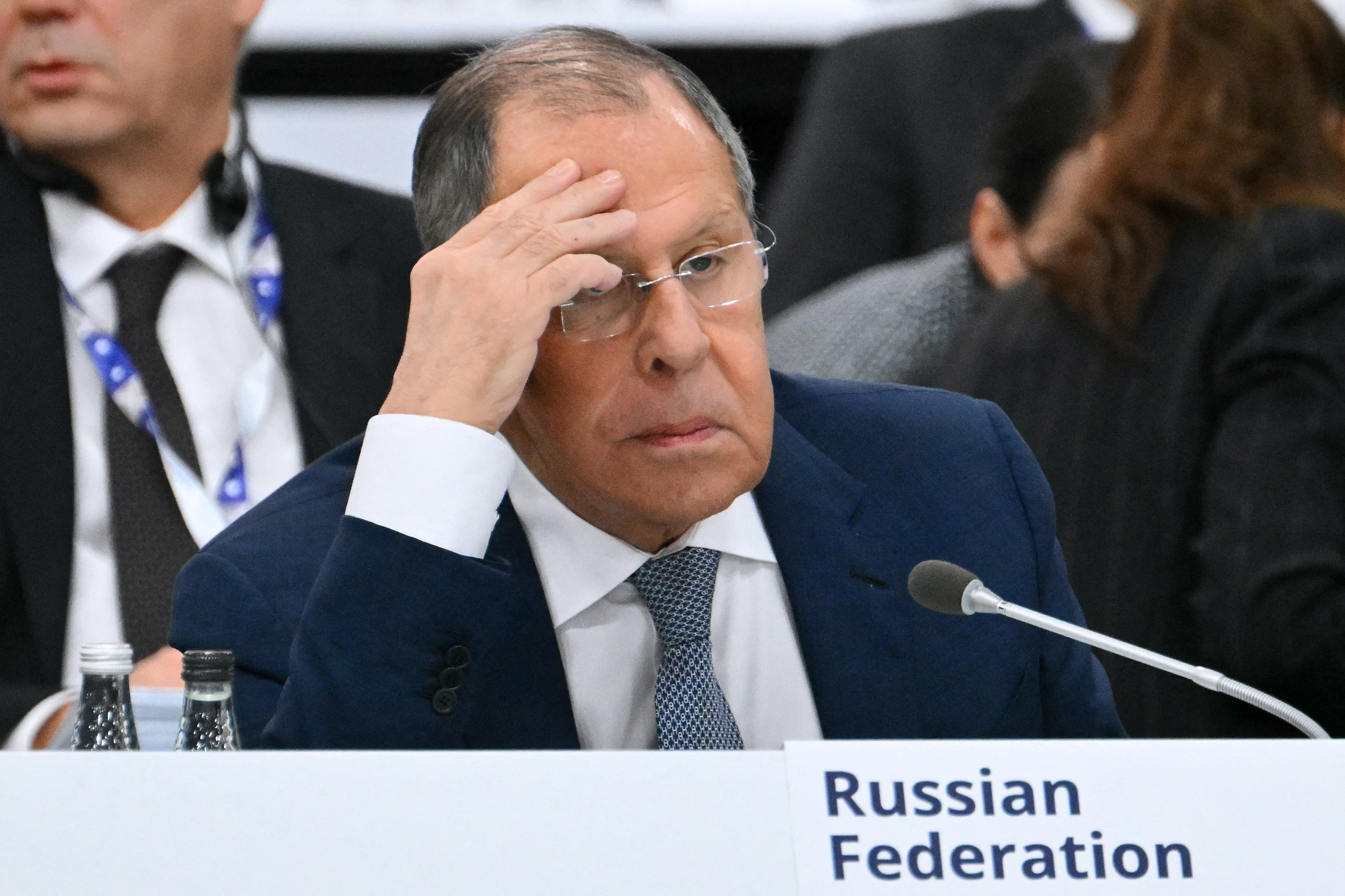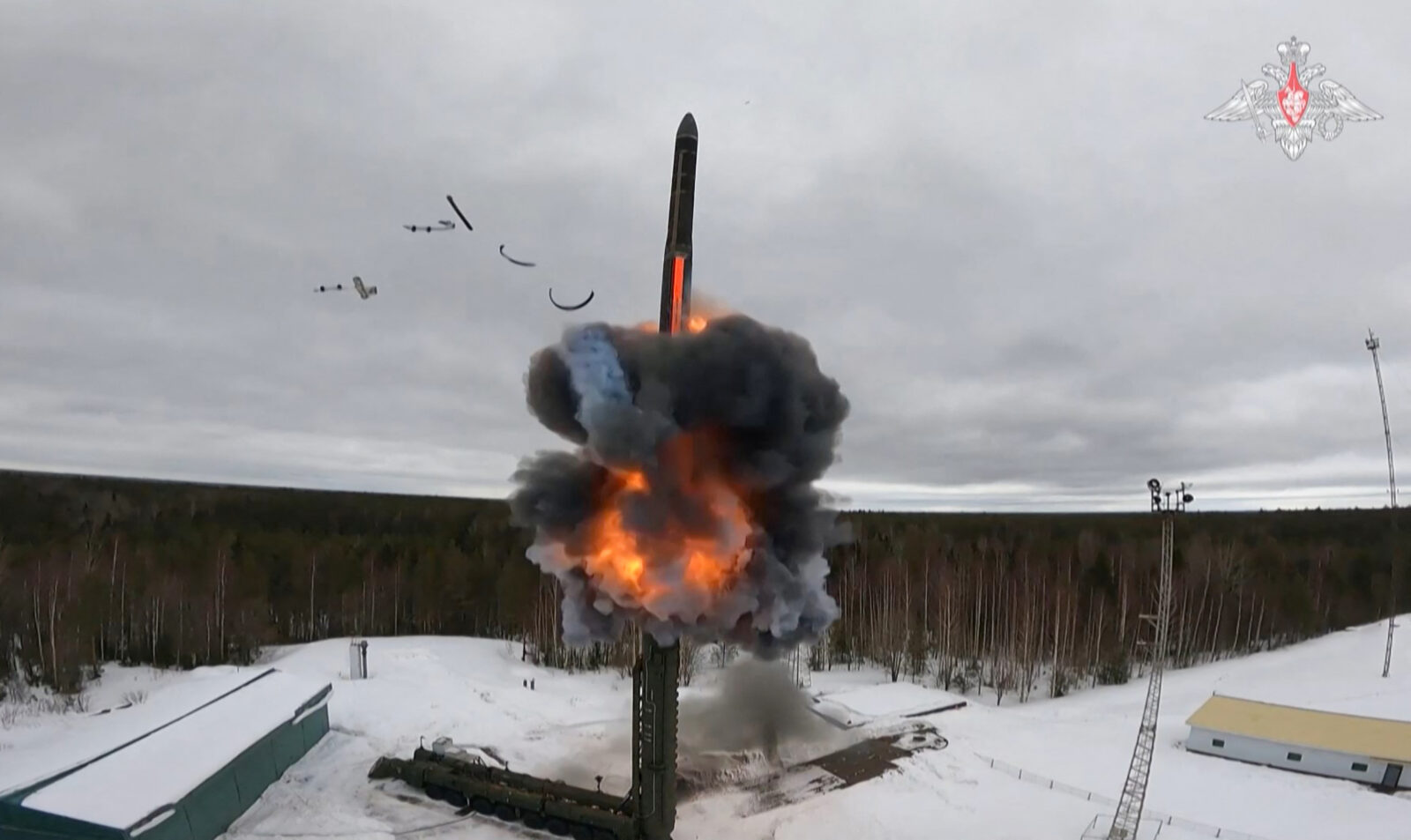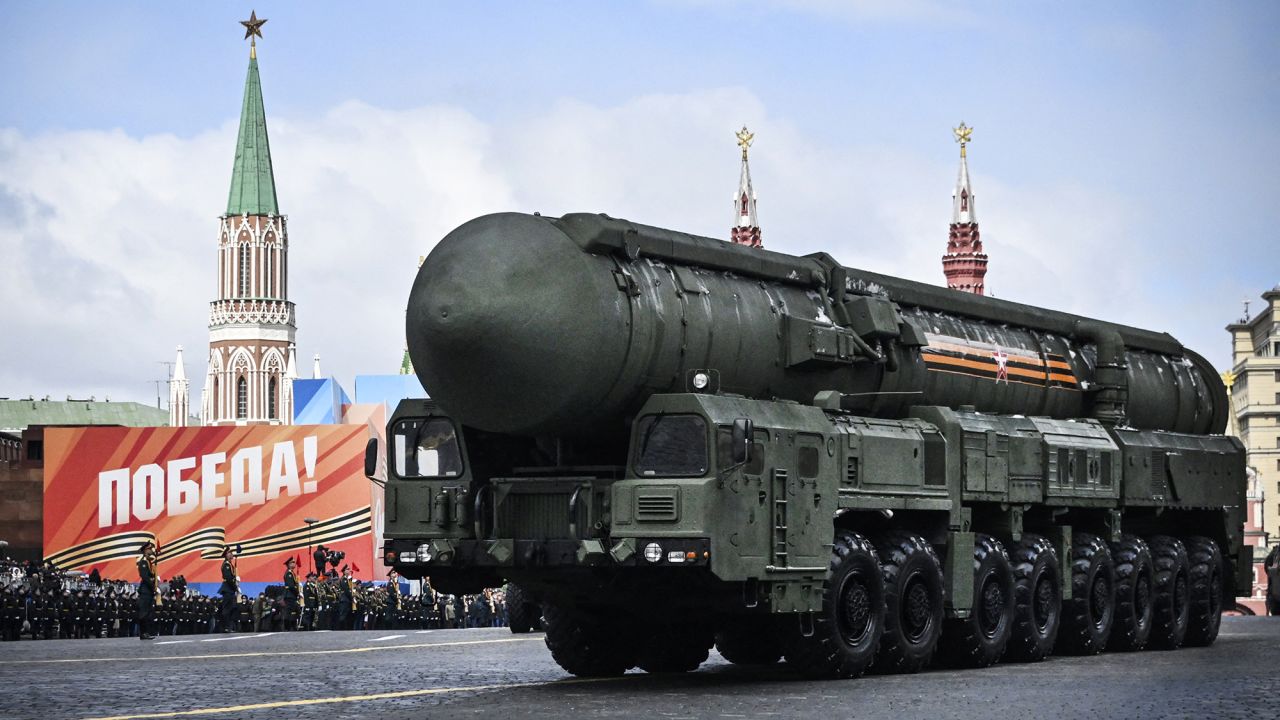
Russian Foreign Minister Sergei Lavrov announced that Moscow will end its moratorium on deploying intermediate and shorter-range nuclear-capable missiles.
He cited the United States’ deployment of similar weapons “in various regions of the world,” effectively dismantling one of the last vestiges of a key Cold War arms control framework.
The move, long hinted at by Russian leaders, may further stoke fears of a renewed arms race involving the world’s two largest nuclear powers, Russia and the United States, along with China. It also highlights the accelerating erosion of decades-old treaties aimed at limiting nuclear arsenals and reducing the risk of a nuclear conflict.
 A Russian Yars intercontinental ballistic missile launcher rolls on Red Square during the Victory Day military parade in central Moscow. (AFP Photo)" >
A Russian Yars intercontinental ballistic missile launcher rolls on Red Square during the Victory Day military parade in central Moscow. (AFP Photo)" >
 A Russian Yars intercontinental ballistic missile launcher rolls on Red Square during the Victory Day military parade in central Moscow. (AFP Photo)
A Russian Yars intercontinental ballistic missile launcher rolls on Red Square during the Victory Day military parade in central Moscow. (AFP Photo)
Both Moscow and Washington bemoan the collapse of the intricate network of arms control treaties, yet each blames the other’s alleged treaty breaches. Tensions remain at post-Cold War lows, jeopardizing future negotiations and increasing the likelihood of an arms race.
As the INF Treaty fades into history and the New START agreement faces an uncertain future, experts worry about a broader global ripple effect. With few diplomatic channels open, Russia’s latest announcement may prompt further missile deployments and additional countermeasures by other nuclear-armed states, placing existing stability at increasing risk.